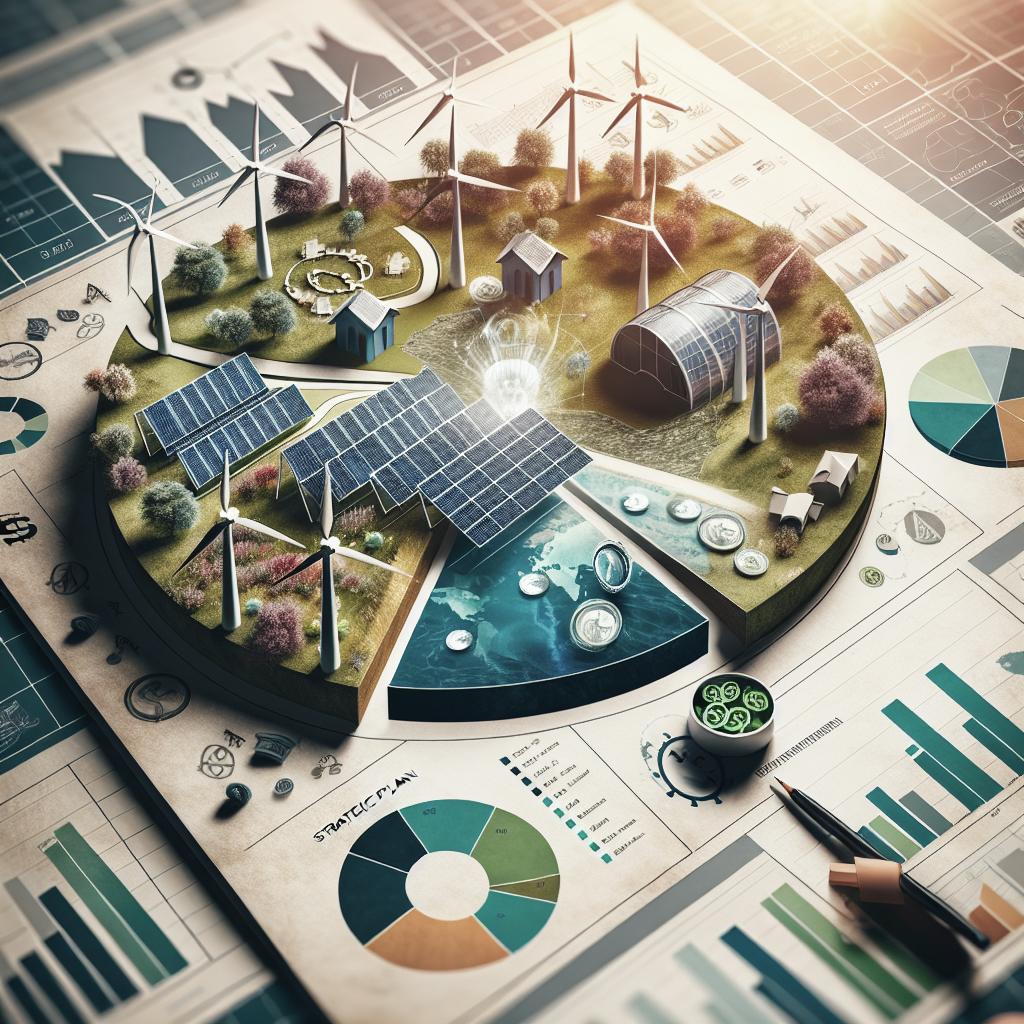Renewable Resources in Economic Planning
As global concerns regarding climate change and environmental depletion escalate, integrating renewable resources into economic planning has emerged as a pivotal strategy for sustainable growth. This guide delves into the multifaceted role of renewable energy sources in shaping economic trajectories, examining their benefits, strategies for on-site project implementation, and the array of tools available to support these efforts. Embracing renewable resources not only mitigates environmental impacts but also bolsters economies by fostering innovation, creating jobs, and ensuring energy security. Explore the transformative potential of incorporating renewable energy into economic development plans, and discover the prospects for a cleaner, more resilient economic future.
Overview
The integration of renewable resources into economic planning marks a significant paradigm shift in addressing both environmental and economic challenges. Renewable energy sources, such as solar, wind, and hydropower, offer sustainable alternatives to traditional fossil fuels, which are finite and environmentally detrimental. Emphasizing renewables within an economic framework can enhance energy security, reduce greenhouse gas emissions, and foster economic resilience.
Globally, governments and businesses are increasingly focusing on harnessing renewable energy to fulfill their energy needs while reducing carbon footprints. From national policies encouraging investment in green technologies to local initiatives promoting community solar projects, renewable resources are steadily gaining traction as a central element of future economic development strategies. Adopting renewables is not just a viable option but an imperative approach to achieving sustainable economic growth.
Benefits of Renewable Energy
One of the most compelling benefits of incorporating renewable energy into economic planning is its potential to substantially reduce carbon emissions, thereby mitigating the adverse impacts of climate change. Renewables are pivotal in decreasing reliance on fossil fuels, which are major contributors to global warming and environmental degradation. Transitioning to renewable energy sources can dramatically lower a region’s carbon footprint, maintaining environmental integrity for future generations.
Apart from environmental advantages, renewables have significant economic benefits. They serve as engines of economic growth and job creation across various sectors, from technology development and manufacturing to installation and maintenance. Additionally, renewable energy projects contribute to energy independence, stabilizing energy prices and reducing vulnerability to volatile fossil fuel markets. This stability fosters an attractive investment climate, catalyzing further economic development.
Implementing On-site Renewable Energy Projects
Implementing on-site renewable energy projects poses numerous advantages for businesses and communities alike. Businesses that install solar panels or wind turbines on-site can witness significant cost reductions in their energy bills and enjoy tax incentives and grants provided by governments to promote energy efficiency. For communities, localized renewable projects can democratize energy access, offering residents reliable and affordable energy solutions independent of centralized power systems.
The process of on-site renewable energy implementation involves thorough analysis and strategic planning, beginning with an energy audit to assess potential sites and energy needs. Engaging with key stakeholders, securing funding, and complying with regulations and codes are imperative steps in project realization. Through collaborative efforts, communities and businesses can successfully integrate on-site renewables, enhancing both environmental sustainability and economic resilience.
Tools and Resources
A wealth of tools and resources are available to facilitate the integration of renewable resources into economic planning. Online platforms offering data analysis and simulation models can assist stakeholders in evaluating the feasibility and impact of renewable ventures. Such tools enable precise energy load calculations, inform decision-making with potential financial outcomes, and ensure optimal resource utilization.
Furthermore, numerous government programs and non-profit organizations provide resources such as funding, technical assistance, and educational workshops to support renewable energy initiatives. Accessibility to these tools and resources encourages widespread adoption of renewable projects, helping communities and businesses transition towards sustainable economic models grounded in renewable energy utilization.
Future Prospects
| Aspect | Description |
|---|---|
| Environmental Impact | Reduction in carbon emissions and mitigation of climate change effects. |
| Economic Benefits | Job creation, economic growth, and stabilization of energy prices. |
| Strategy | On-site renewable projects and effective planning tools and resources. |


